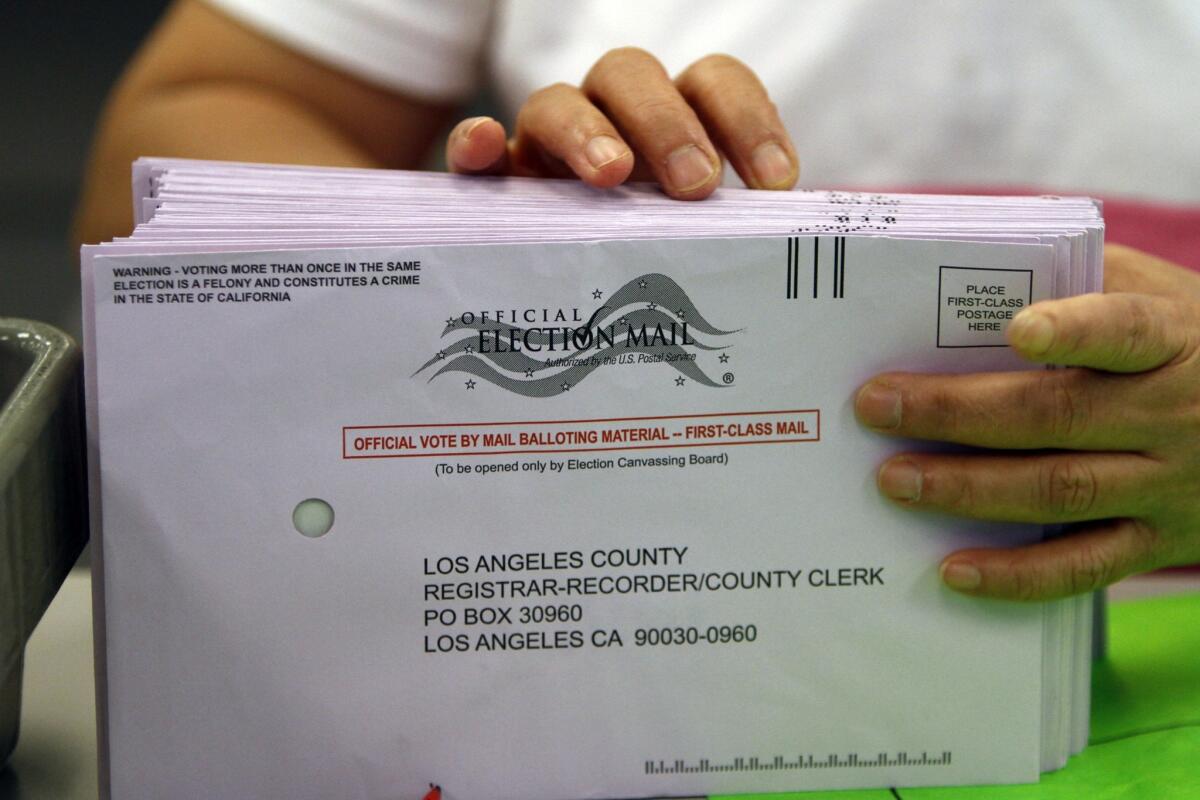Google and Twitter expand policies to fight election misinformation

Stepping up efforts to stop misinformation spreading online during the U.S. election in November, Google said it will block some autocomplete search suggestions, while Twitter expanded an existing âcivic integrityâ policy to include information that tries to undermine election results.
The autocomplete feature of the worldâs largest search engine regularly recommends full queries once users begin typing words. The company said Thursday that it will remove predictions that could be interpreted as claims for or against any candidate or political party.
In addition, Google said it will pull claims from the autocomplete feature about participation in the election, including statements about voting methods, requirements, the status of voting locations and election security.
For instance, if you type âyou can voteâ into Googleâs search engine, the system may have suggested a full query that includes misleading or incorrect information. Typing those three words into Google on Thursday produced the full phrase âYou can vote yourself into socialismâ as the top recommended query.
âThat might mean some perfectly benign predictions get swept up in this,â said David Graff, senior director of global policy and standards at Google. âWe think thatâs the most responsible approach, particularly when it comes to elections-related queries.â
Alphabet Inc.âs Google stressed that users will still have the ability to search for any query.
In a blog post, Twitter said it will label or remove offending posts, including unverified suggestions that results are rigged and misleading posts about election results, beginning Sept. 17. Itâs unclear when a post will merit removal versus a label, and a spokesperson said that distinction will be made based on the postâs ability to cause âharmâ and how explicit the misleading information is.
âThe goal is to further protect against content that could suppress the vote and help stop the spread of harmful misinformation that could compromise the integrity of an election or other civic process,â Twitter wrote.
Twitter was early in enforcing a voting misinformation policy against President Trump in May, and the president responded by signing an executive order to limit liability protections for social media companies.
Facebook has similar policies around misleading voting information, but the company labels all posts that discuss the voting process, not just false ones, making it difficult to determine when a post is in violation.
The potential manipulation of Googleâs autocomplete search suggestions has been debated for years. Online reputation services claim they can alter these recommendations to only show positive phrases about a company or person.
The Wall Street Journal reported last year that Googleâs autocomplete search results for sensitive subjects such as abortion and immigration were replaced with safer results than those found on competing search engines. Google has denied bias in search results.
U.S. lawmakers have scrutinized tech giantsâ role in the spread of false and misleading content as foreign actors launch disinformation campaigns targeting a range of issues including the COVID-19 pandemic to the U.S. presidential election.
Facebook and Twitter have pledged to be more vigilant and have cracked down by taking down posts deemed false and a risk to health and safety.
Google has removed ads from sites that violate its policies on false claims and so-called deepfakes. The company has also pulled more than 200,000 videos and more than 100 million ads from its YouTube service to curb disinformation about the pandemic.
Google commands the vast majority of the U.S. search market and its outsize influence has come under scrutiny by U.S. regulators that are preparing an antitrust case against the company.
Google has drawn criticism for changes to its search engine in recent years that have made it harder and more expensive for businesses and web publishers to reach customers as advertising tops search results.






